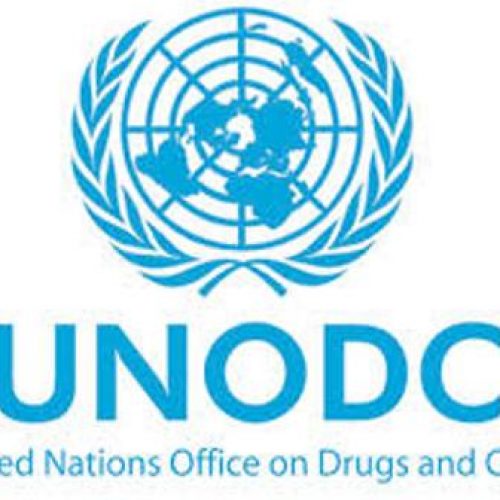Why you should be well informed about your medications
… PSN President advises Nigerians on right approach to drug use
Your doctor has just diagnosed an ailment which has for some time, become a source of worry to you. As is often the practice In Nigeria, he has volunteered much information either about the ailment or the drug he has prescribed for you. What should be your reaction? Proceed to the pharmacy to obtain your drugs even if the pharmacist offers no further information apart from the dosage? Wrong. But a survey has revealed that a majority of Nigerians are likely to react this way
According to our investigation, very few people will insist on knowing the cause of their ailment, how it was acquired, and its consequences on their health. In some instances, where the enlightened patient insists on knowing more about his ailment, many doctors, our investigation further reveals, are often not willing to divulge such information. That is not all, our survey also revealed that, most patients will not ask the pharmacist for vital information on the drugs they are given.
“The dosage is all the average patient cares to know in this environment, sometimes not even when the pharmacist goes out of his way to enlighten him so he could get the best out of the drugs. In most cases, the average patient is in a hurry. All he wants is to be given the drugs with simple instructions such as ‘take one three times daily’. He’s not ready for any further discussion,” a pharmacist who pleaded anonymity told our reporters.
But experts say every patient must be fully informed about his condition and the drugs he takes. Just as every patient has a right to be properly informed about his ailment by his doctor, the president , Pharmaceutical Society of Nigeria (PSN) Mr. Olumide Akinsanya says it is the right of the patient to know all about the drugs being prescribed for him and to know how such drugs will affect his health.,
According to Mr. Akinsanya, every patient must insist on his right when it comes to medications because it could be a matter of life and death. The patient he said must be told how to use the drug, for how long and also, whether to take it before or after meals. That’s not all, when next you buy a drug, Akinsanya says you should ask questions about how to store it, its side effects and contraindications.
According to him, the storage of your drugs could affect its potency so your pharmacist should inform you on how they should be kept. Most drugs, he says are likely to lose their potency when kept directly under sunlight. Also, drugs are better kept away from children to avoid disaster.
The patient should be warned about the side effect of the drug he’s buying. Generally, every drug has one side effect or the other. In most cases however, such side effects may not be so pronounced to warrant a drug not being prescribed but the patient ought to be informed so he should know what is going on in his body when such side effects occur.
Where one or more types of drugs have been prescribed, pharmacists advise that the patient should ask whether such drugs are not likely to interfere with each other in the body because there are certain class of drugs which must not be taken together.
A pharmacist therefore needs to study your prescription and call the attention of the doctor to a likely case of a drug interaction to avoid contra-indication, tell your pharmacist any other ailment you may have and ask if the drug being recommended for you is not going to aggravate such condition.
Also, according to Mr. Akintayo, it is the pharmacist’s duty to ensure that the drug you are being given does not lead to further deterioration of another ailment you may have. This is why for instance, people should buy their drugs from registered pharmaceutical premises and insist on seeing relevant information concerning their drugs.
For instance, no pharmacist will want to sell tetracycline to a pregnant woman because of its effect on the baby in the womb so he will recommend an alternative. Of course, before buying a drug, you have the right to know if the pharmacy is registered. You can ask to see the pharmacists’ license which is expected to be displayed in the pharmacy.
Indeed, experts have advised that the individual patient must be involved in the management of his condition to get the best medical treatment. Getting involved of course means demanding for vital information about your ailment and medications.
However, in case you are not getting the best from your pharmacist or where a fake drug is sold to you (if you can recognize it) Mr. Akinsanya says you have a right to seek redress.
First ensure that you have evidence (a receipt bearing the name of the pharmacy). Then report to the states branch of the Pharmaceutical Society of Nigeria and the Pharmaceutical Council of Nigeria. If found guilty, the pharmacist stands the risk of being blacklisted and forbidden to practice pharmacy anywhere in the country.
About author
You might also like
How misdiagnosis sends Nigerians to early grave
Ibilola Essien, a lawyer and wife of ace radio broadcaster, George Essien, is lucky to be alive. In July last year, she developed a severe abdominal pain and was rushed
Engaging airlines and travel agents in preventing human trafficking
When she was offered a ticket to Oman to start work as a house help, 28 years old Nigerian woman Adaora already pictured a bright future abroad. But once in
How unplanned births leave Nigerian women on the brink of death
While it is worrisome that many women in Nigeria become pregnant almost every year, what is more disturbing is the fact they carry these pregnancies between life and death –







0 Comments
No Comments Yet!
You can be first to comment this post!